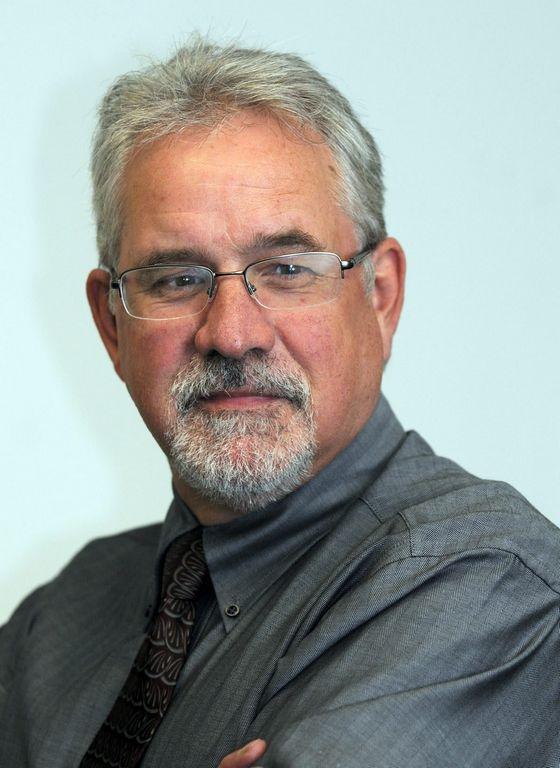
The party conventions have come and gone, cementing the state of the presidential race rather than changing it.
Democrats left Philadelphia mostly united, with advantages in money and organization, but limited enthusiasm for their candidate.
Republicans left Cleveland still divided between those who love their candidate and those who consider him dangerous and crazy.
In the days that followed the balloon drops, Donald J. Trump confirmed what we’ve learned in a year of following his improbable candidacy. His attack on the parents of a soldier killed in Iraq showed again how thin-skinned and politically tone-deaf he is. The only thing surprising is how many people still say they’ll vote for him.
As for the conventions, the Democrats put on a better show. They had a bigger budget, with brighter stars — Meryl Streep vs. Scott Baio — and better music — Katie Perry, Paul Simon and Alicia Keys vs. a country band no one could name.
They had a star-studded music video that has already been viewed more than a million times, and high-quality mini-dramas directed by the likes of Shonda Rhimes.
The writing was better, the pacing was better and the cast of Democratic speakers towered over the Republican lineup.
Republicans had a different slogan for every night — “Make America Safe Again,” “Make America Work Again,” and so on — but speakers mostly ignored them.
Whatever narrative arc they were building kept getting interrupted by unscripted distractions: the plagiarism flap over Melania Trump’s speech, Trump’s questioning of NATO commitments in a midweek interview, and the non-endorsement snub by Ted Cruz on Wednesday.
Democrats had a more subtle design.
Monday was a showcase for Bernie Sanders and the progressive wing, a chance for them to vent their frustrations and be welcomed into the party.
Tuesday was devoted to women, stressing Hillary Clinton’s historic victory.
Wednesday saw a turn toward national security, with the Democrats playing the 9/11 card — the stories of Clinton’s advocacy for victims and first responders were far more convincing than Rudy Guiliani’s “be very afraid” speech in Cleveland — and with Barack Obama giving perhaps the best endorsement speech any convention has ever seen.
By Thursday, themes struck all week in Philadelphia came together in a picture that struck a sharp contrast to the face Republicans had presented a week before, completing a kind of role reversal.
Suddenly, Democrats were the more patriotic party, with flags everywhere and chants of “U.S.A., U.S.A., U.S.A.”
A four-star general thundered from the podium that Clinton, not Trump, had a better plan to defeat ISIS. In another reversal, the Democrats struck more religious notes than Republicans, especially Trump, who never mentioned God in his acceptance speech.
Democrats have stolen Ronald Reagan’s “morning in America” optimism. For Trump and Republicans, Hillary Clinton said, it’s “midnight in America.”
Democrats were inclusive; Republicans exclusive. In contrast to the sea of white faces in Cleveland, the Democrats presented a mosaic of Americans of every race, religion and lifestyle.
They put on their stage the very people Trump and the Republicans have ridiculed and demonized: gay people, trans people, people with disabilities, immigrants from all over.
While Trump tried to reach out to disaffected Sanders supporters, appealing on the basis of shared anger, not issues, Democrats enlisted Republicans and independents like Mike Bloomberg in their cause. There are no prominent Democrats for Trump, but we’ll see plenty of Republicans for Clinton.
Trump has been giving ammunition to his opponents since the campaign began, and in his acceptance speech, he reinforced the Democrats’ central theme. Painting a picture of an America on the edge of an abyss of destruction and despair, Trump declared “I, alone, can fix it.”
But it’s not “yes he can,” Obama reminded the nation, it’s “yes we can.” Americans are “stronger together,” speaker after speaker repeated.
Conservative columnist Jonah Goldberg nailed the difference between the conventions, writing that the Democratic gathering was about loving America, while the “GOP convention was about loving Trump.”
Yes, there were signs of disunity in Philadelphia. The Bernie-or-bust crowd had their say on Monday, and a handful of them refused to shut up the rest of the week. But Sanders himself was gracious throughout, and he’ll be helpful in the campaign to come.
Republicans are even more divided than Democrats, but their dissenters mostly stayed away from Trump’s convention, while no prominent Democrats boycotted the DNC.
Clinton cultivated the Sanders wing through careful negotiations on the platform and convention, and it was Bernie himself who moved her nomination be made unanimous.
Trump could have spent the last two months making peace with his former opponents, but he is not temperamentally suited to team-building. So top Republican leaders and donors aren’t on his team, and Cruz, who had come in second, dissed him in Cleveland instead of nominating him.
In such a long campaign, with so many people’s minds already made up, the conventions are more a milestone than a turning point.
The candidates, their themes, advantages and disadvantages are now locked in place.
They will duke it out for the next 100 days, and it’s likely to be ugly.
I expect I’m not the only one who wishes we could just vote now and get it over with.
Rick Holmes writes for GateHouse Media. He can be reached at rholmes@wickedlocal.com.
This article originally appeared on Crestview News Bulletin: HOLMES: Democrats celebrated America; GOP celebrated Trump
